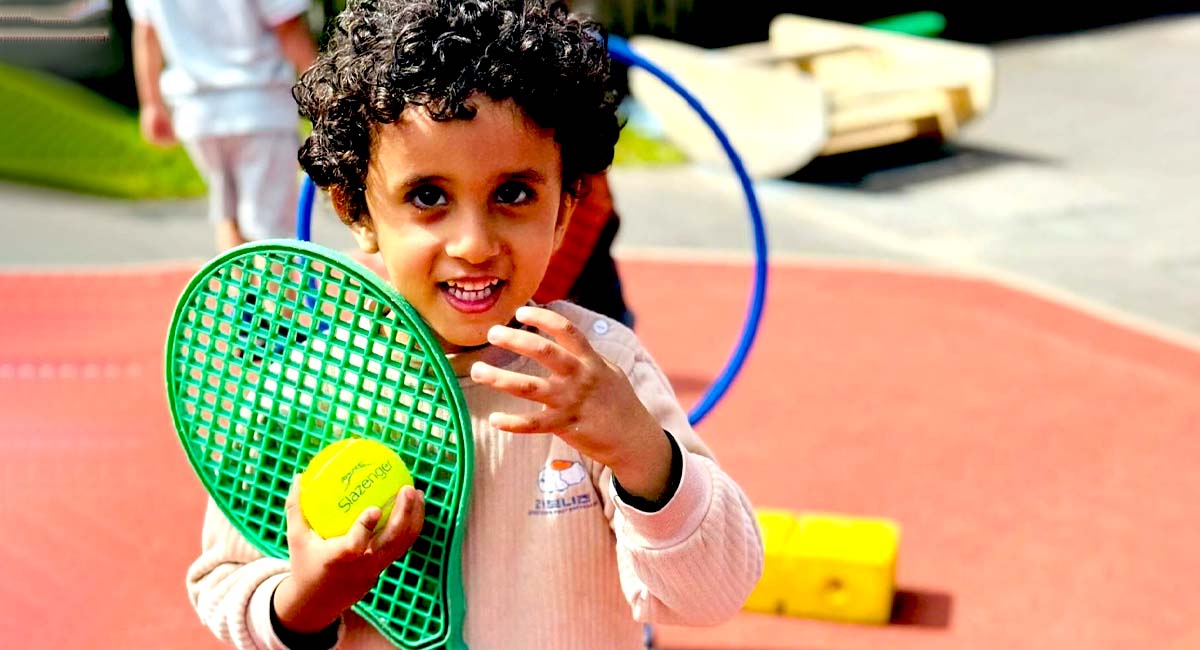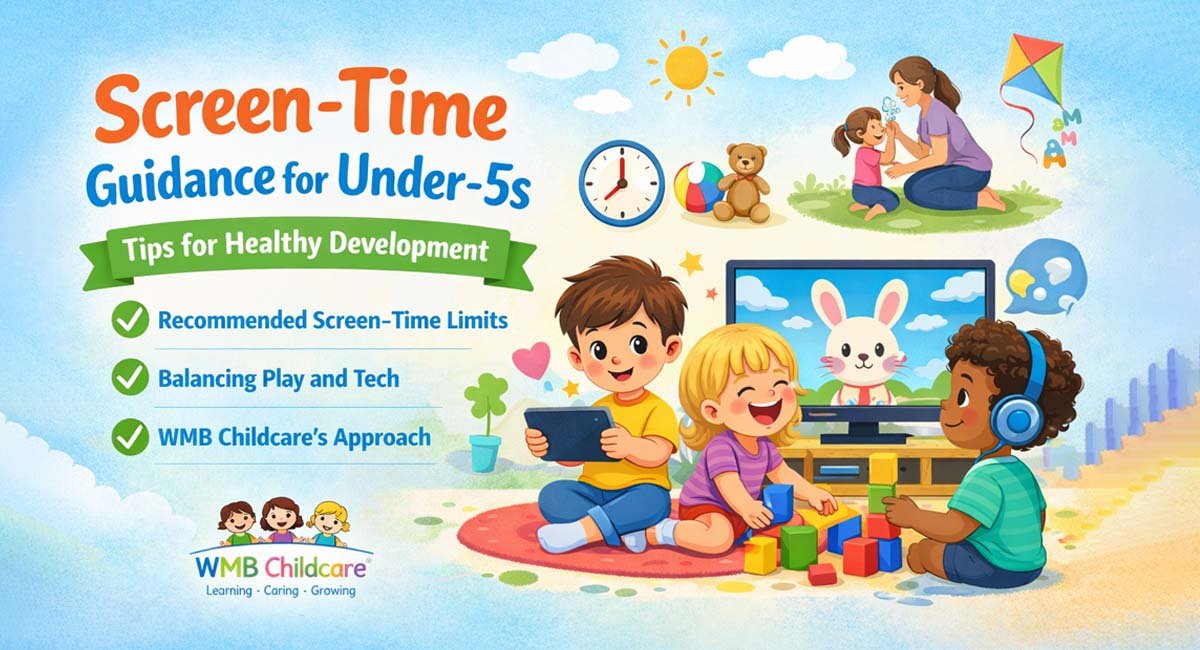Boosting Your Child’s Confidence
In today’s fast-paced, tech-driven world, the sight of children playing freely outdoors has become increasingly rare. However, those who witness it often notice something remarkable: the confidence that blossoms in children when they step outside. The outdoor environment offers a unique, dynamic setting where children not only play but also thrive. This blog explores why children are most confident outdoors and how nature plays a pivotal role in their overall development.
The Natural Confidence Booster
Outdoor play is a powerful confidence booster for children. The open, unstructured environment of the outdoors encourages children to explore, experiment, and engage with their surroundings in ways that are often restricted indoors. Here’s how:
1. Freedom to Explore
Independence: Outdoor play allows children to make their own decisions and navigate their surroundings independently. Whether choosing which tree to climb or deciding on the rules of a game, this autonomy fosters self-reliance and decision-making skills.
Creativity: The lack of rigid structure outdoors invites imaginative play. Children can transform sticks into swords, rocks into treasures, and backyards into magical kingdoms. This creative freedom boosts self-expression and confidence.
2. Overcoming Challenges
Resilience: Nature is filled with manageable challenges—climbing a steep hill, balancing on a log, or navigating through a dense thicket. Overcoming these obstacles builds resilience and teaches children that they are capable of handling difficulties.
Risk Management: Outdoor play often involves a degree of risk-taking. Learning to assess and navigate these risks safely helps children develop critical thinking and risk management skills, leading to greater self-assurance.
3. Physical Activity
Strength and Coordination: Physical challenges like running, jumping, and climbing improve children’s strength, coordination, and overall physical health. Achieving physical milestones boosts their confidence in their bodies and abilities.
Healthy Competition: Engaging in sports and games with peers teaches children about healthy competition, teamwork, and fair play. These experiences help them build social confidence and leadership skills.
4. Social Interaction
Teamwork and Collaboration: Outdoor settings often bring children together, fostering teamwork and collaboration. Group activities, whether organized sports or impromptu games, teach children how to communicate, cooperate, and lead.
Conflict Resolution: Playing with peers outdoors also means dealing with disagreements and conflicts. Learning to navigate these social challenges enhances interpersonal skills and self-confidence.
Encouraging Outdoor Play
To nurture confident, resilient, and well-rounded children, it is essential to encourage outdoor play. Here are some tips for parents and caregivers:
1. Create Opportunities
Ensure that children have ample opportunities to play outside. This could be a trip to the park, a hike in the woods, or simply time spent in the backyard.
2. Provide Resources
Equip children with the tools they need for outdoor exploration—comfortable clothing, sturdy shoes, and age-appropriate gear like bikes or sports equipment.
3. Lead by Example
Join your children in outdoor activities. Family hikes, camping trips, and gardening can be fun and enriching experiences that promote confidence and family bonding.
4. Limit Screen Time
Encourage children to unplug from digital devices and engage with the natural world. Set limits on screen time to make room for outdoor play.
A List of outdoor spaces where children can explore
1. Parks and Playgrounds
Community Parks: These often feature playgrounds with swings, slides, climbing structures, and open spaces for running and playing games.
Nature Parks: Parks with natural settings, including trails, streams, and forests, where children can explore, hike, and engage in nature-based activities.
2. Beaches
Sandy Beaches: Ideal for building sandcastles, playing beach volleyball, swimming, and collecting seashells.
Rocky Shores: Great for exploring tide pools, finding sea creatures, and climbing on rocks.
3. Forests and Woodlands
National and State Forests: These provide trails for hiking, opportunities for camping, and spaces for nature exploration.
Local Wooded Areas: Small patches of forests where children can climb trees, observe wildlife, and play in a natural setting.
4. Adventure Playgrounds
Urban Adventure Playgrounds: These are designed to encourage imaginative and creative play with materials like wood, tires, and ropes for building structures and obstacles.
Nature Adventure Parks: These combine elements of natural landscapes with play structures to create engaging and adventurous environments.
5. Backyards and Gardens
Home Backyards: Even small backyard spaces can be transformed into play areas with swings, trampolines, treehouses, and gardening spaces.
Community Gardens: Shared spaces where children can learn about planting, growing, and harvesting plants while playing and exploring.
6. Sports Fields and Courts
Soccer Fields: Open fields where children can play soccer, run, and engage in various sports.
Basketball and Tennis Courts: Courts where children can play organized sports or just shoot hoops and have fun.
7. Lakes and Rivers
Lakefronts: Areas where children can swim, kayak, fish, or simply enjoy the water.
Riverbanks: Perfect for wading, skipping stones, and exploring aquatic life.
Tips for Making the Most of Outdoor Play Spaces
1. Safety First
Ensure the play area is safe and supervise younger children to prevent accidents.
2. Encourage Exploration
Allow children to explore freely within safe boundaries to foster independence and confidence.
3. Pack Essentials
Bring water, snacks, sunscreen, and appropriate clothing to ensure children are comfortable and protected.
4. Engage in Activities
Participate in games, sports, and activities with children to make the experience more enjoyable and enriching.
Conclusion
Outdoor play is invaluable for children’s growth, and these diverse places offer a wealth of opportunities for them to play, learn, and develop in natural and stimulating environments. By exploring different outdoor settings, children can gain confidence, build skills, and create lasting memories.
Children are naturally drawn to the outdoors, where their confidence can flourish in a setting that encourages exploration, creativity, and resilience. By supporting and facilitating outdoor play, we help children build the self-assurance they need to navigate life’s challenges and become confident, capable individuals. Overall, outdoor play is crucial for the holistic development of children, providing a well-rounded foundation for physical, mental, emotional, and social growth. Encouraging children to spend time outside can have lasting positive effects on their overall well-being.
So, let’s embrace the power of nature and unlock the full potential of our children by encouraging them to step outside and explore the world around them.








